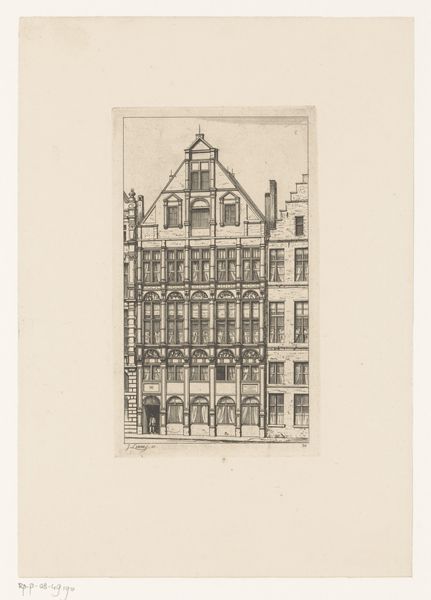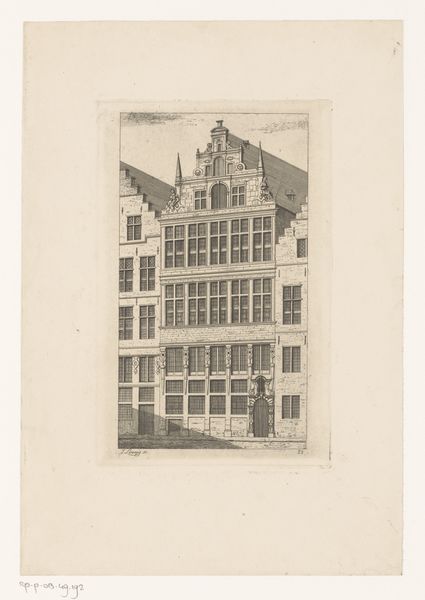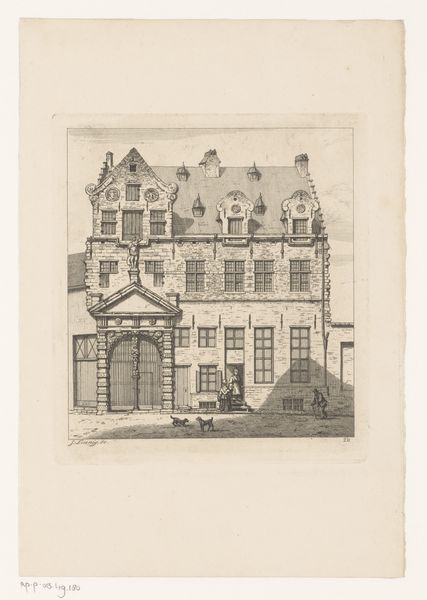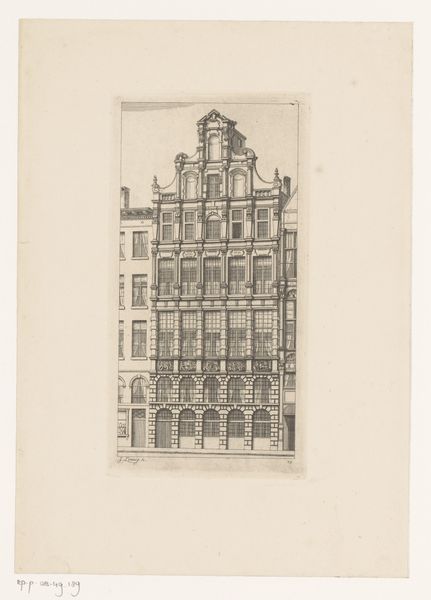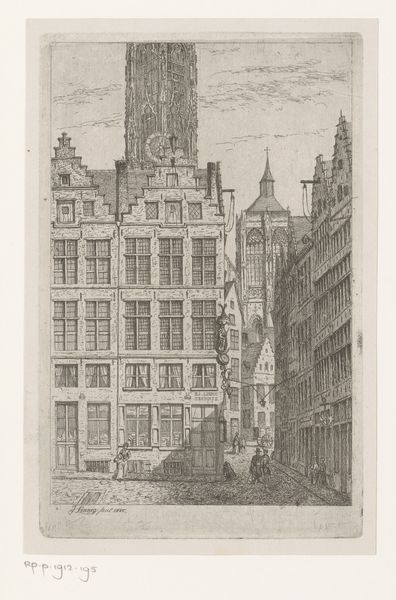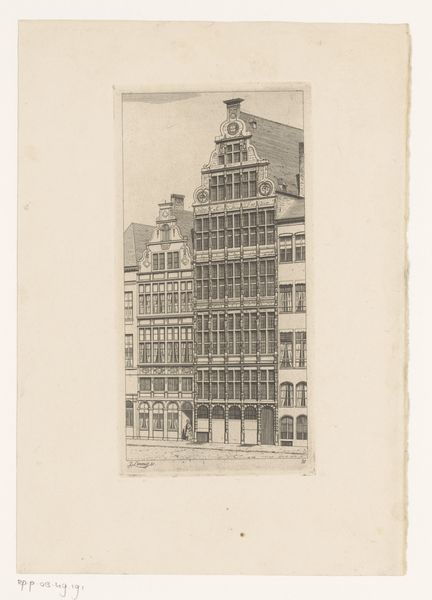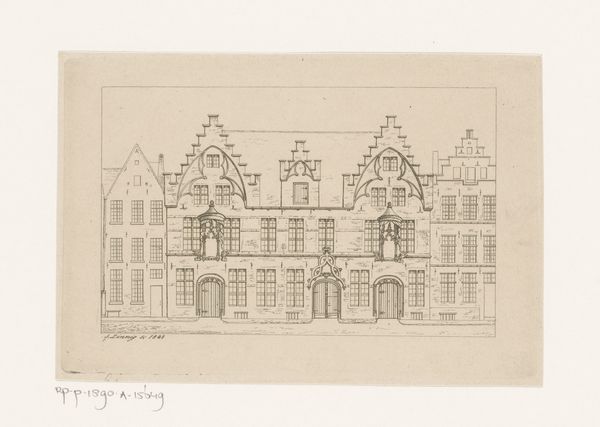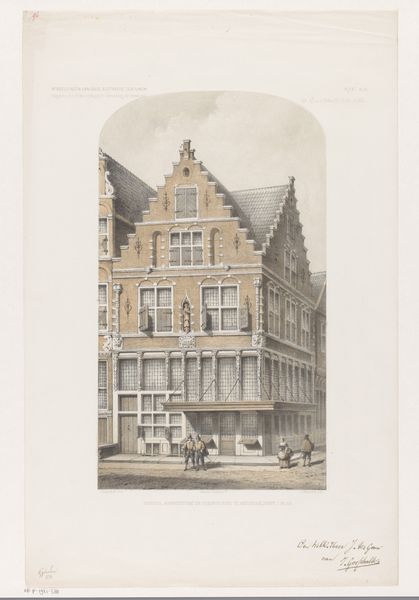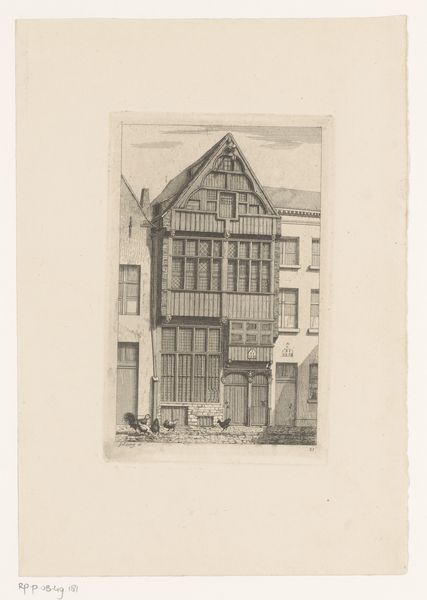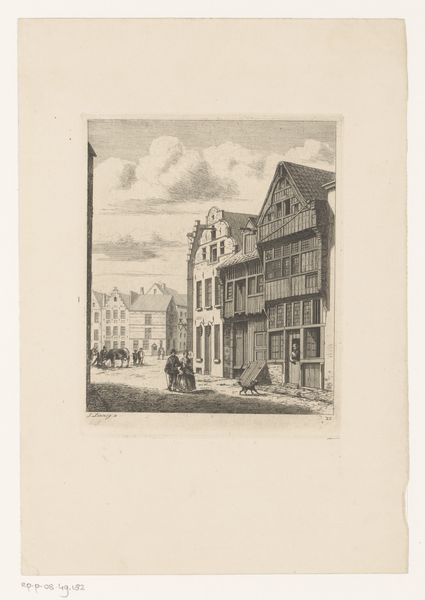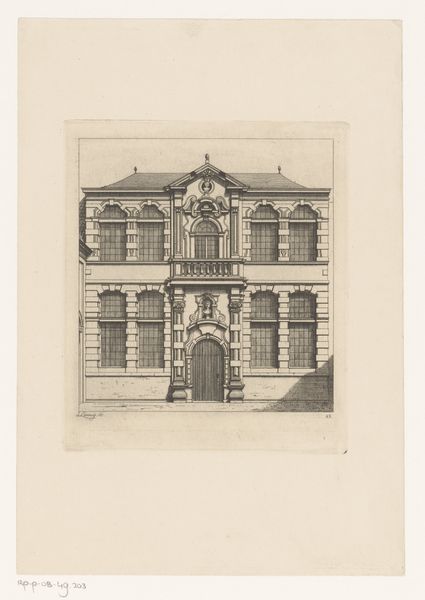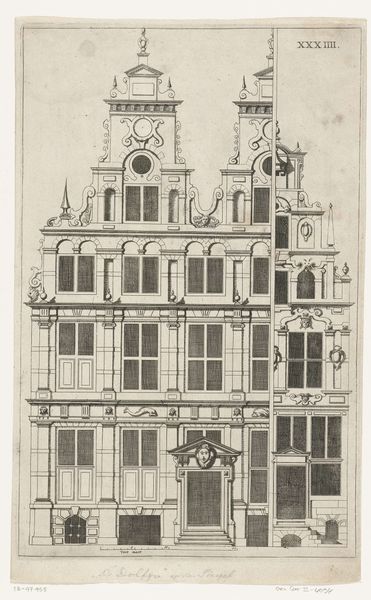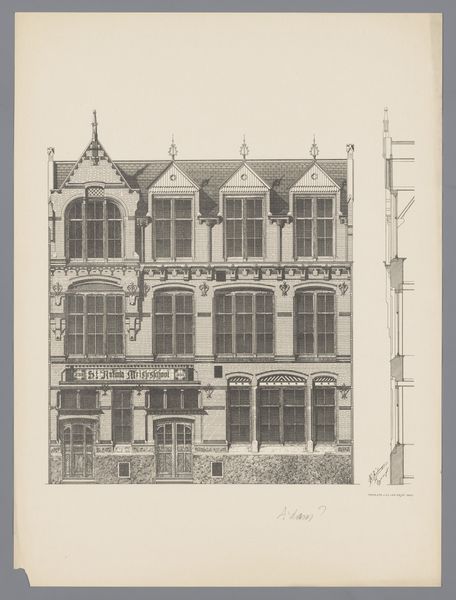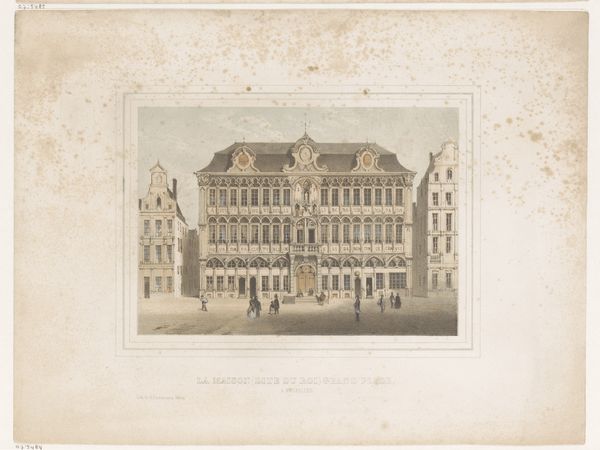
drawing, print, etching, paper, ink
#
drawing
#
toned paper
# print
#
etching
#
paper
#
ink
#
cityscape
#
realism
#
building
Dimensions: height 175 mm, width 106 mm
Copyright: Rijks Museum: Open Domain
Jean Theodore Joseph Linnig made this etching of a house front on Antwerp’s Hoogstraat sometime in the 19th century. It shows a narrow building, typical of the city, crammed between neighbors in a dense urban landscape. In the Low Countries, the urban patriciate was historically a powerful social class that manifested its status in the architecture of its homes. This facade is highly ornamented, with rows of windows and elaborate brickwork that create a visual code of wealth and stability. The Hoogstraat, as the name suggests, was among the more desirable addresses in Antwerp. Linnig emphasizes the prosperity of the scene, but the print also reveals something about the social role of the artist in 19th-century Belgium. Linnig was part of a generation of artists who saw themselves as chroniclers of urban life. Prints like this one document the physical fabric of the city, but also speak to the social and economic forces shaping its development. To know more, one could consult historical maps, census records, and period newspapers. Art is always contingent on its social and institutional context.
Comments
No comments
Be the first to comment and join the conversation on the ultimate creative platform.
